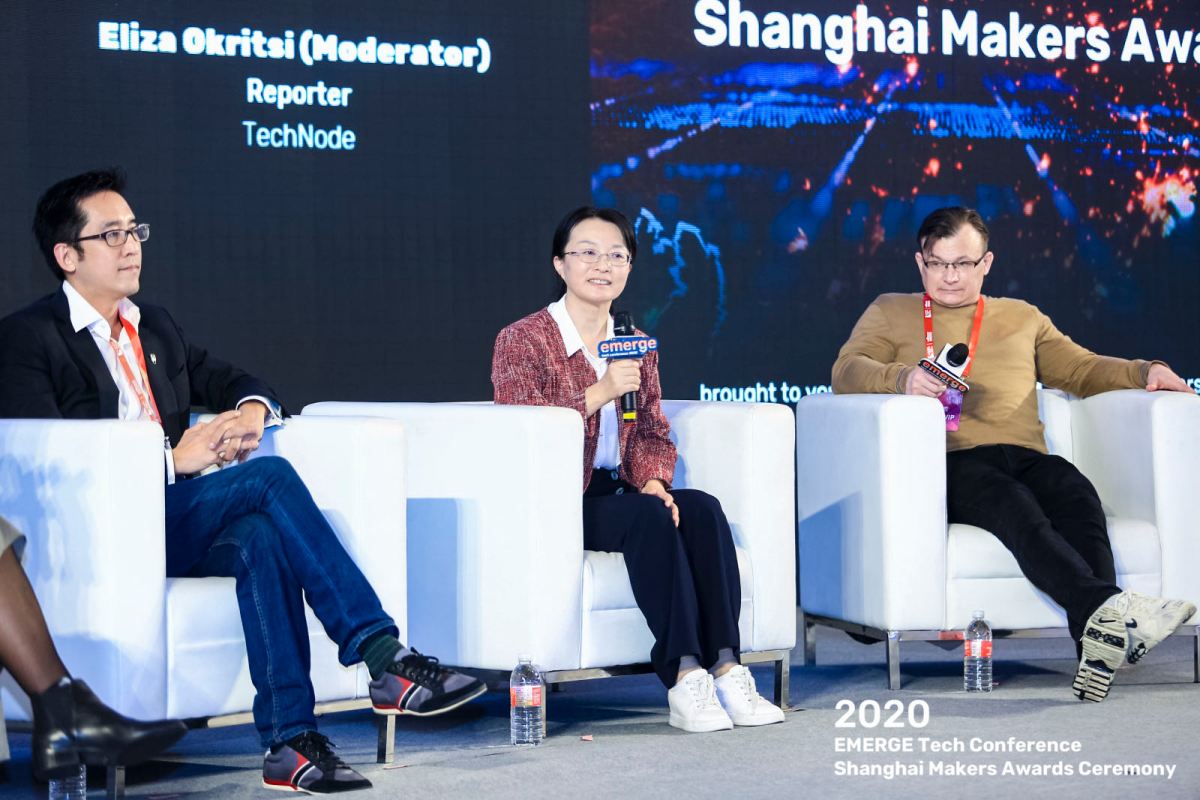“China is in the driver’s seat” of blockchain development as blockchain adopters look for solutions to connect different chains, Fudan University professor Michael Sung said at the TechNode Emerge 2020 conference held on Thursday.
Cross-chain integration, called “interoperability” in the blockchain world, is a key challenge for the emerging technology. Blockchain promises a decentralized, largely tamper-proof way to store and share data. But as different users adopt different chains, there is a rising need for good ways to exchange data between them.
Interoperability is “going to be driven by China, because China can mandate that everyone do the same thing,” said Sung, the co-director of the Fudan Fanhai Fintech Research Center and chairman of Carbon Blue Innovations.
China’s blockchain developers are riding a wave of state support since the technology was “anointed” by top leaders, following the pattern of artificial intelligence and 5G, Matthew Graham, CEO of blockchain-focused investment fund Sino Global Capital, said during the panel discussion. This support means “huge investment, probably overinvestment,” he said. “But out of that, innovative things will emerge.”
Crypto investors are also misallocating funds in exchanges, Graham said. He cited the decentralized file storage token Filecoin as an example of frothy funding from retail investors.
“The last time there was a digital technology that was this transformational,” said Graham, “it was probably the internet. With blockchain, we’re not even at AOL—it’s 1993.”
China’s blockchain ecosystem has weaknesses, the panelists said, naming public blockchain and token-based business models as examples. The country restricts much cryptocurrency activity, and is known for favoring more controllable permissioned or consortium chains over decentralized chains.
But this preference is not absolute, said Harriet Cao, co-founder of Bianjie, a Shanghai-based startup that has developed both public chains and enterprise-oriented consortium chains. “Public blockchain is highly supported” as long as companies are working on the technology and not banned activities like initial coin offerings, she said. Cao said she has been invited to universities around China to introduce public chains.
Chinese regulators are also working with companies to experiment in blockchain-based “digital assets,” Sung said. His lab is working on a project to create blockchain-based green bonds, he told TechNode, and he expects similar projects to take root soon. The key, he says, is finding a balance: “How can we create the proper hybrid frameworks as to have enough control, whether it’s a bank, a company. There is a balance point in taking a centralized system and slowly decentralizing it,” said Sung.
Soon, Sung predicted, a digital asset economy will emerge “like the flip of a switch.” With projects already in the works, he said, he expects this change “on a sub two-year time horizon.”
READ MORE: China’s BSN to test cross-chain interoperability in October



